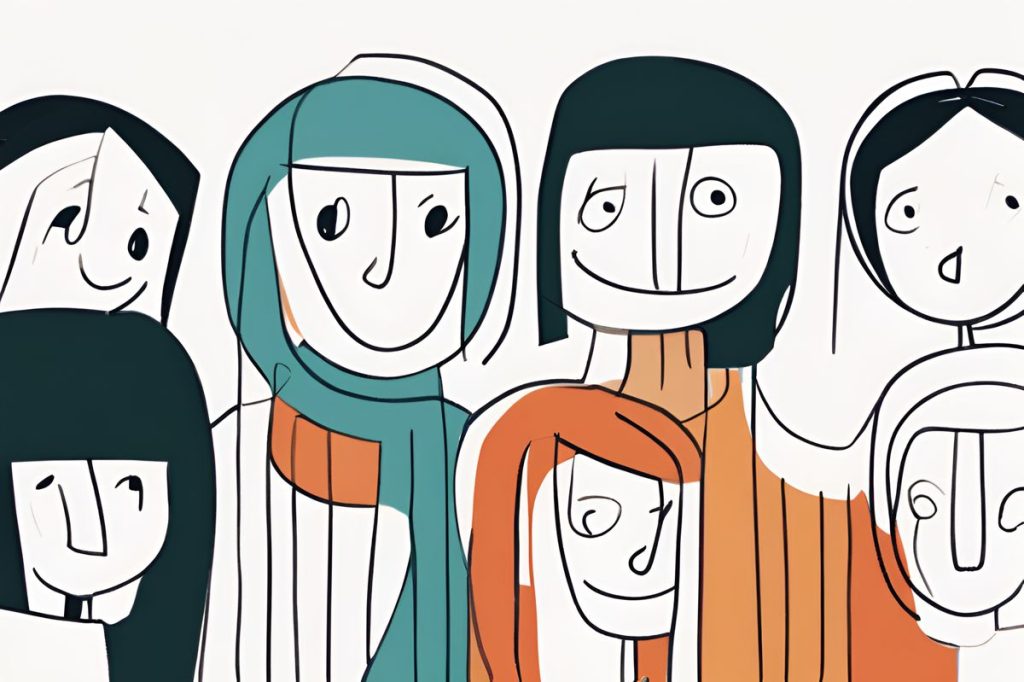The EU Health Commissioner, Stella Kyriakides, is leading efforts to combat HIV stigma by promoting public education and creating inclusive environments. Her goal is to ensure that HIV-positive individuals can access services and workplaces without fear, replacing prejudice with empathy and understanding.
How is the EU addressing HIV stigma?
The EU, through Health Commissioner Stella Kyriakides, is tackling HIV stigma by advocating for continuous public education, normalizing HIV discussions, and fostering inclusive environments. The aim is to replace prejudice with empathy, ensuring HIV-positive individuals can access services and workplaces without fear. The EU’s vision involves community support and quality-of-life improvements for those affected by HIV.
Breaking Down Barriers
Stella Kyriakides, the European Commissioner for Health and Food Safety, has made a powerful call for action against the discrimination faced by HIV-positive individuals within the European Union. Her statements followed an enlightening visit to the Gregorios Pulmonology Clinic in Larnaca. There, medical professionals shared the social challenges that those living with HIV encounter. Kyriakides emphasized the need for a societal shift, where prejudice and misinformation are replaced with knowledge and empathy. The commissioner’s vision is one of inclusivity, where HIV-positive individuals can access services and workplaces without fear or concealment.
Advocacy Beyond Awareness
The commissioner underscored that efforts to educate and sensitize the public to the realities of HIV should not be confined to just World AIDS Day on December 1st. Instead, it should be a continuous effort. Kyriakides spoke of creating environments—from schools to professional settings—where discussions on HIV are normalized. By fostering such openness, the day-to-day experiences of those affected by HIV can be improved, creating a society that is both informed and sensitive to their needs.
A Personal Touch
Kyriakides recounted a poignant interaction with a patient at the clinic, underscoring the profound impact of stigma. The fear of being recognized or judged for seeking medical care is a reality for many, and it’s a sentiment that reflects the need for change. The aim is to transform clinics into spaces where care is received without prejudice. The commissioner praised the clinic staff for their role in accepting HIV-positive individuals and expressed a commitment to facing and solving these challenges together.
Community and Quality of Life
The support for those with HIV extends beyond the healthcare system. It’s a societal responsibility to improve the quality of life for those affected. This involves eradicating stigmatizing attitudes and fostering a sense of community that welcomes everyone. A study involving Cypriot HIV-positive individuals brings this issue to light, revealing that less than half enjoy a good quality of life due to stigma, which can significantly limit job opportunities. It’s vital to communicate effectively what HIV infection is and to support those living with it in achieving a better standard of living.
A Unified Effort
The visit from the EU Commissioner was received with gratitude by healthcare professionals such as George Siakallis, an Infectious Diseases doctor at the clinic. Siakallis reinforced the idea that communication is key and that society has a duty to provide better living conditions for HIV-positive individuals. It is within our collective power to dispel myths and integrate all members of our communities into a supportive and understanding environment.
Through education, empathy, and an ongoing commitment to advocacy, the EU strives to create a world where HIV stigma is a thing of the past. For that to happen, every day must be an opportunity to fight against misconceptions and foster an inclusive society.
How is the EU addressing HIV stigma?
The EU, through Health Commissioner Stella Kyriakides, is tackling HIV stigma by advocating for continuous public education, normalizing HIV discussions, and fostering inclusive environments. The aim is to replace prejudice with empathy, ensuring HIV-positive individuals can access services and workplaces without fear. The EU’s vision involves community support and quality-of-life improvements for those affected by HIV.
What is Stella Kyriakides advocating for in relation to HIV stigma?
Stella Kyriakides is advocating for a societal shift where prejudice and misinformation surrounding HIV are replaced with knowledge and empathy. She aims to create inclusive environments where HIV-positive individuals can access services and workplaces without fear or concealment. Kyriakides emphasizes the importance of continuous efforts to educate the public and sensitize them to the realities of HIV.
Why is it important to normalize discussions on HIV beyond World AIDS Day?
Stella Kyriakides and healthcare professionals stress the importance of normalizing discussions on HIV beyond World AIDS Day to create environments where those affected by HIV can feel supported and understood on a day-to-day basis. By fostering openness and awareness, society can improve the quality of life for HIV-positive individuals and combat the stigma they face in various aspects of their lives.
How does the EU plan to improve the quality of life for those affected by HIV?
The EU’s efforts to combat HIV stigma extend beyond healthcare to the societal level. By eradicating stigmatizing attitudes and fostering a sense of community that welcomes everyone, the EU aims to provide better living conditions for those affected by HIV. Through effective communication, empathy, and a unified effort, the EU strives to create a world where HIV stigma is eliminated and all individuals can access the support and understanding they need.

